Persuasive Letter To Parents
[Your Name]
[Your Address]
[City, State, Zip Code]
[Email Address]
[Phone Number]
[Date]
Dear Mom and Dad,
I hope this letter finds you both in the best of health and spirits. As your child, I am writing to share an important matter that I believe will positively impact my life and future. I understand that sometimes we may not see eye to eye on certain matters, but I sincerely request you to consider my perspective with an open mind.
Over the past few months, I have been contemplating a decision that I believe will greatly enrich my personal and academic growth - the opportunity to participate in a study abroad program. I have researched extensively and spoken to my teachers and peers who have taken part in similar programs. After much thought and consideration, I firmly believe that studying abroad will be an invaluable experience for me.
Here are some compelling reasons why I believe this experience is worth considering:
1. Academic Growth: The study abroad program offers courses that are not available in our local school. I will have access to unique subjects, innovative teaching methods, and exposure to different perspectives that can enhance my knowledge and understanding of the world.
2. Cultural Exchange: Immersing myself in a new culture will be an eye-opening experience. It will help me appreciate diversity, broaden my horizons, and develop a more global perspective. Learning to adapt to a different culture will also help me become more independent and resilient.
3. Personal Development: Being away from home and stepping out of my comfort zone will allow me to discover new strengths and capabilities within myself. I believe this experience will help me grow as an individual, making me more self-confident and resourceful.
4. Networking Opportunities: Interacting with students from different countries and backgrounds will enable me to build a diverse network of friends and contacts. These connections may prove beneficial for future academic pursuits or career opportunities.
5. Enhanced Language Skills: If I choose a program in a country where English is not the first language, I will have the chance to improve my language skills. Being bilingual or multilingual can be a significant advantage in today's interconnected world.
6. College Applications: Participation in a study abroad program can make my college applications stand out. Admissions officers value students who have sought unique experiences and have shown a willingness to step out of their comfort zones.
I understand that you may have concerns about my safety, the financial aspect, or my ability to manage in a foreign environment. Rest assured, I have thoroughly researched the safety measures in place at the program and the host institution. I am also committed to taking responsibility for any financial burden by applying for scholarships, grants, and part-time work opportunities while abroad.
I truly believe that this experience will have a profound and positive impact on my life, and I kindly request your support and encouragement to pursue this opportunity. I am willing to sit down and discuss any concerns you may have so we can find the best solution together.
Thank you for taking the time to read my letter and for your unwavering love and support throughout my life. Your guidance means the world to me, and I promise to approach this opportunity with maturity and responsibility.
With all my love and gratitude,
[Your Name]
Encouraging Participation in School Event
Dear Parents,
We are excited to announce our upcoming school science fair and would love your child to participate. This event is an excellent opportunity for students to showcase their creativity, develop critical thinking skills, and build confidence.
We encourage your support in motivating your child to engage fully and contribute their unique ideas. Your involvement can make a big difference in creating a memorable and educational experience for everyone.
Thank you for your continued support.
Sincerely,
[Teacher's Name]
[School Name]
Request for Parent-Teacher Meeting Attendance
Dear Parents,
We believe that collaboration between school and home is essential for your child's success. We are inviting you to attend our upcoming parent-teacher meeting to discuss academic progress and address any concerns.
Your presence will greatly help us create a personalized learning plan that supports your child’s growth. We hope you can make it and join us in fostering a positive educational journey.
Warm regards,
[Teacher's Name]
[School Name]
Promoting Healthy Lifestyle Choices
Dear Parents,
As part of our health and wellness initiative, we are encouraging all families to participate in a school-wide program promoting nutritious eating and daily physical activity. Small steps at home, such as balanced meals and active play, can significantly improve students’ energy and focus.
We kindly request your support in reinforcing these habits at home, which will contribute to a healthier, happier school community.
Thank you for your cooperation.
Sincerely,
[Teacher's Name]
[School Name]
Encouraging Consent for Educational Field Trip
Dear Parents,
We are organizing an educational field trip to [Destination] to enhance students’ learning about [Topic]. This experience will provide hands-on learning and inspire curiosity beyond the classroom.
We encourage you to provide consent and support your child’s participation. It promises to be both an educational and enjoyable day.
Best regards,
[Teacher's Name]
[School Name]
Supporting Extra-Curricular Program Enrollment
Dear Parents,
Participation in extra-curricular activities like music, sports, and arts greatly contributes to a child’s overall development. We are inviting your child to join [Program Name], which offers both skill development and social interaction.
Your encouragement will help your child make the most of these opportunities and enjoy a well-rounded school experience.
Warmly,
[Teacher's Name]
[School Name]
Promoting Reading Habits at Home
Dear Parents,
To support literacy development, we recommend setting aside time each day for your child to read at home. Regular reading strengthens comprehension, vocabulary, and imagination.
We encourage your active participation by discussing books and sharing reading experiences with your child.
Sincerely,
[Teacher's Name]
[School Name]
What / Why: Purpose of a Persuasive Letter to Parents
- A persuasive letter to parents is used to motivate, encourage, or request parental action or support.
- Can target academic participation, behavioral guidance, health initiatives, or school event involvement.
- Aims to strengthen collaboration between school and home, enhancing student outcomes.
Who Should Send a Persuasive Letter to Parents
- Teachers seeking parental support for academic or extra-curricular activities.
- School administrators promoting programs, policies, or events.
- Coordinators of special initiatives such as health, safety, or enrichment programs.
Whom the Letter Should Be Addressed To
- Parents or legal guardians of students.
- Occasionally extended to caregivers or family members involved in child supervision.
- Can be individualized for specific students or generalized for entire classes or grades.
When to Send a Persuasive Letter to Parents
- Prior to school events or trips requiring consent.
- Before the start of a new program, initiative, or academic term.
- When seeking behavioral support or participation in health or educational campaigns.
- Any time parental involvement can positively impact student outcomes.
How to Write and Send a Persuasive Letter
- Identify the purpose clearly and maintain a positive tone.
- Use engaging, empathetic language to appeal to parental values.
- Provide clear actions or requests (e.g., consent, attendance, encouragement at home).
- Include relevant details such as dates, deadlines, or resources.
- Send via email, school portal, or printed letter depending on urgency and formality.
Formatting Guidelines for Persuasive Letters
- Length: concise, typically one page or less.
- Tone: positive, encouraging, and respectful.
- Style: professional yet approachable; adapt formality based on audience.
- Include greetings, clear subject, body with rationale, call-to-action, and closing.
- Use bullet points or lists for clarity when detailing tasks or expectations.
Requirements and Prerequisites
- Accurate student and parent contact information.
- Clear understanding of the initiative or activity being promoted.
- Approval from school administration if formal request involves programs or events.
- Supporting materials such as schedules, consent forms, or informational brochures.
After Sending / Follow-up
- Confirm receipt if the letter requests a response (e.g., consent, enrollment).
- Monitor parental engagement and participation.
- Send reminders or supplementary information if necessary.
- Address any questions or concerns promptly to maintain trust and cooperation.
Pros and Cons of Sending a Persuasive Letter to Parents
Pros:
- Encourages active parental involvement.
- Clarifies school expectations and programs.
- Builds positive home-school communication.
Cons:
- May be ignored if too frequent or lengthy.
- Risk of misinterpretation if tone is unclear.
- Requires careful follow-up to ensure effectiveness.
Tricks and Tips for Effective Persuasive Letters
- Start with a friendly and positive opening.
- Focus on benefits for the student to appeal to parents’ interests.
- Keep requests simple, clear, and actionable.
- Use examples or success stories to illustrate impact.
- Maintain consistent communication channels to reinforce messages.
Common Mistakes to Avoid
- Overly demanding or critical tone.
- Using jargon or overly complex language.
- Lack of clarity regarding action required.
- Sending too frequently, which can reduce effectiveness.
- Forgetting to provide deadlines or contact information for follow-up.
Elements and Structure of a Persuasive Letter to Parents
- Subject/Title: Clear and descriptive of the letter’s purpose.
- Greeting: Address parents respectfully.
- Introduction: State reason for writing and positive intent.
- Body: Provide rationale, benefits, and details.
- Call-to-Action: Specific request or recommendation.
- Closing: Express gratitude and willingness to support.
- Signature: Include teacher or administrator name, role, and school.
- Attachments (if any): Forms, schedules, or reference materials.
Does a Persuasive Letter to Parents Require Authorization?
- Generally, letters sent on behalf of the school should have approval from school administration.
- Certain activities, especially trips or programs with liability, may require principal or coordinator endorsement.
- Ensures accountability and maintains credibility with parents.
FAQ About Persuasive Letters to Parents
-
Q: Can parents respond digitally or in writing?
A: Yes, specify the preferred method and deadline for responses. -
Q: How often should persuasive letters be sent?
A: Only when necessary; balance frequency to avoid overwhelming parents. -
Q: Can letters be tailored for individual students?
A: Yes, personalization can increase engagement and responsiveness.
Compare and Contrast Persuasive Letters with Other Communication Forms
- Letter vs Email: Letters feel formal and permanent; emails are faster and more convenient.
- Letter vs Phone Call: Letters allow clear, documented communication; calls are personal but less formal.
- Letter vs Newsletter: Letters can focus on a single actionable item; newsletters provide general updates.

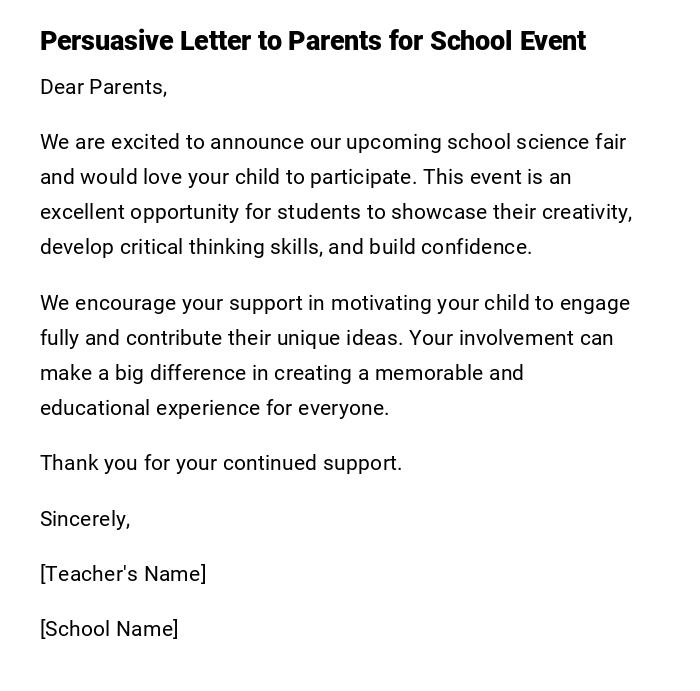
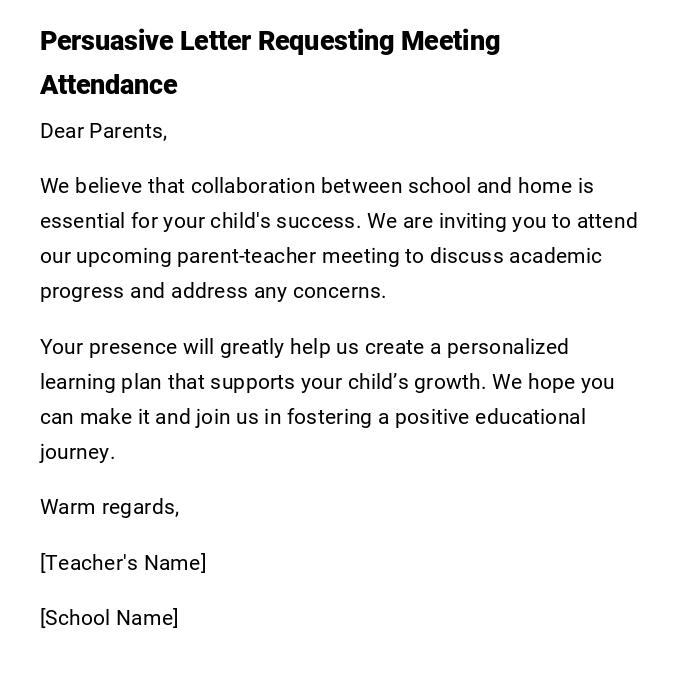
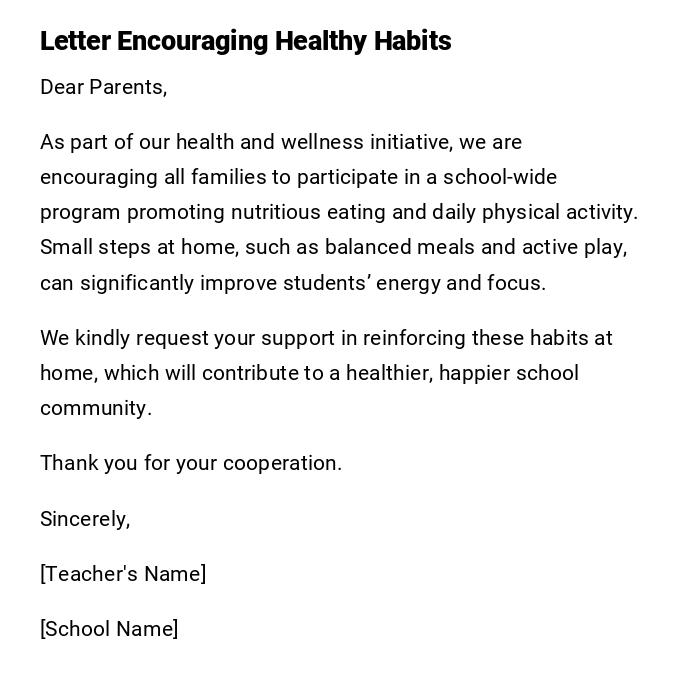
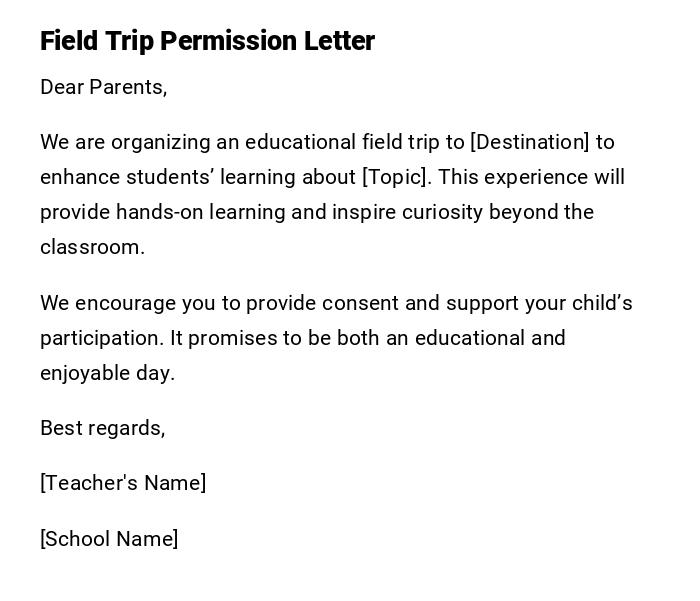
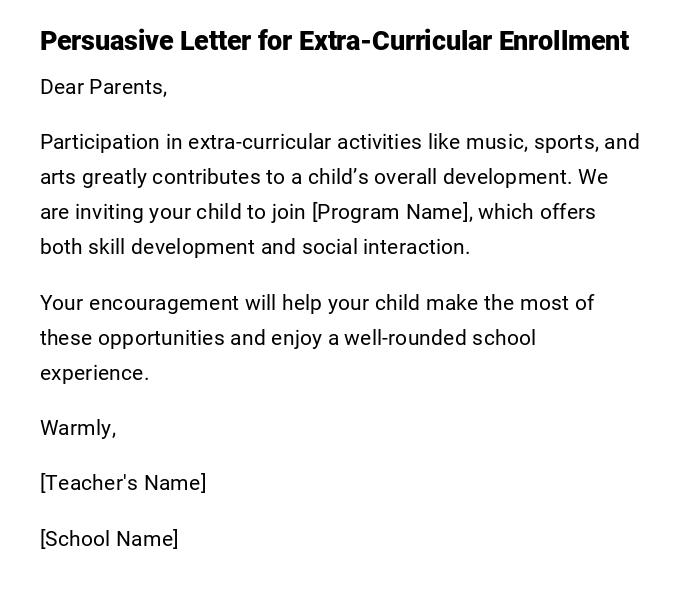
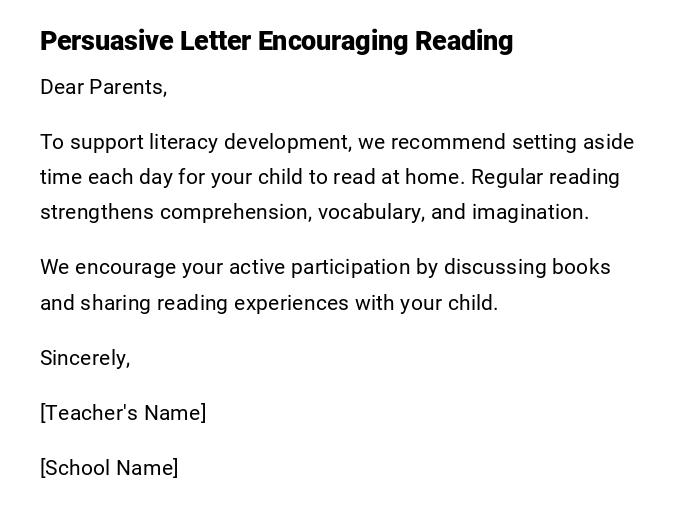

 Download Word Doc
Download Word Doc
 Download PDF
Download PDF